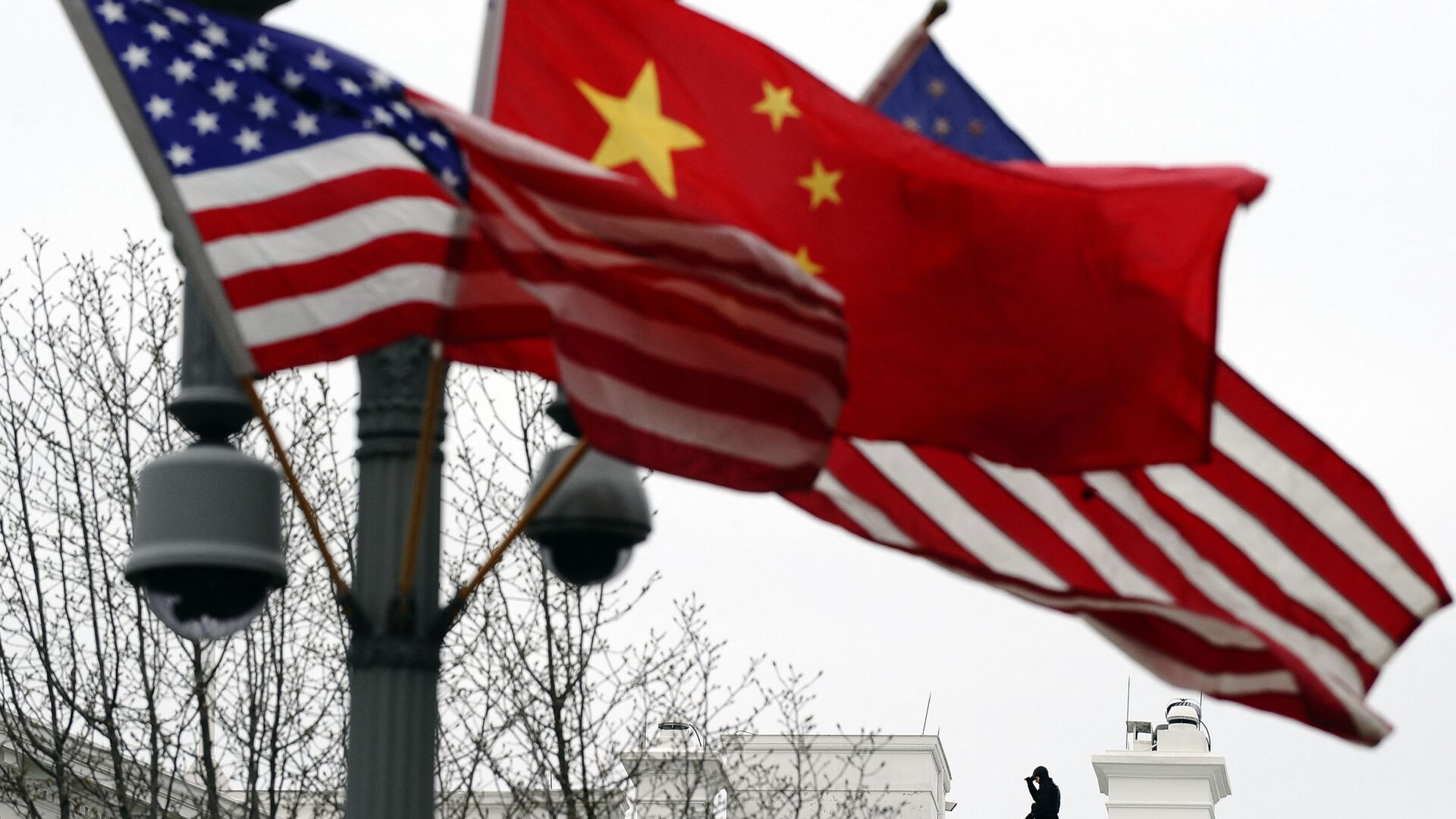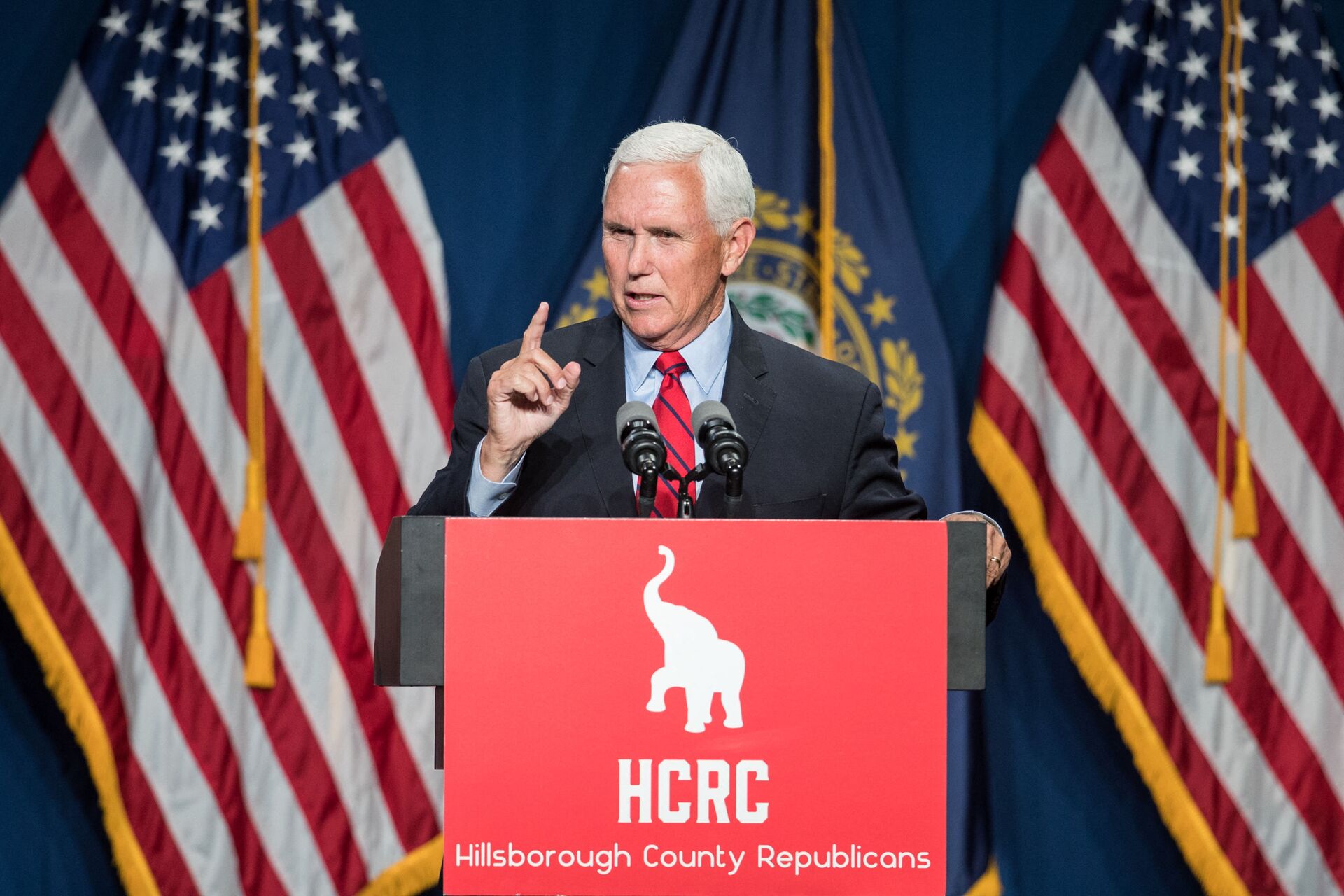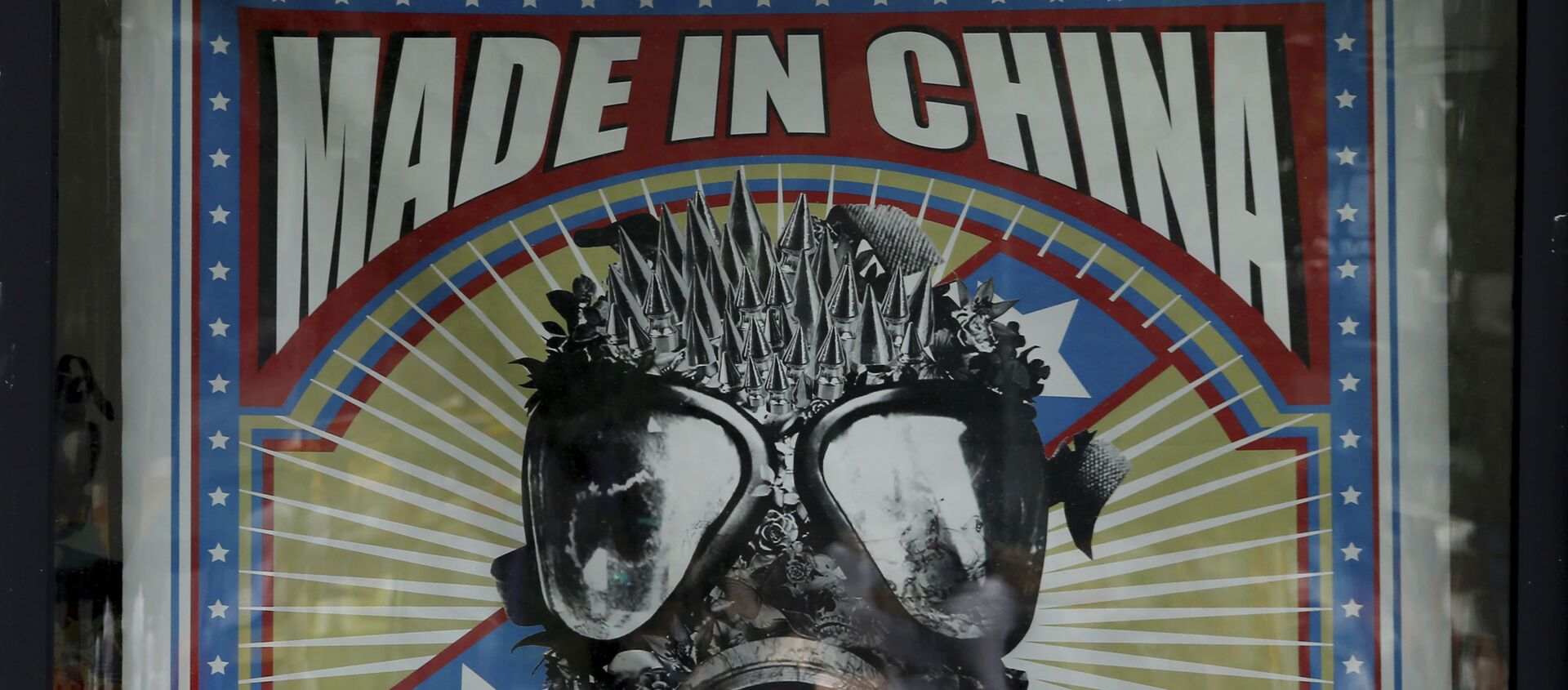https://sputnikglobe.com/20210715/china-senses-weakness-in-biden-administration-pence-claims-1083389549.html
'China Senses Weakness' in Biden Administration, Pence Claims
'China Senses Weakness' in Biden Administration, Pence Claims
Sputnik International
During his first months in office, US President Joe Biden repeatedly stated that he would take a patient approach toward Beijing, explaining the move by the... 15.07.2021, Sputnik International
2021-07-15T08:54+0000
2021-07-15T08:54+0000
2022-08-06T13:20+0000
newsfeed
us
world
china
mike pence
joe biden
relations
allies
climate change
confrontation
https://cdn1.img.sputnikglobe.com/img/07e5/07/0f/1083388892_0:203:2919:1845_1920x0_80_0_0_cbbd453e25eb1456353dff85d95c7af0.jpg
Former US Vice President Mike Pence has lashed out at Washington over its current tactics toward Beijing, arguing that "the Biden-Harris administration is already rolling over to Communist China".In a speech at the Heritage Foundation headquarters in Washington, D.C., the ex-vice president singled out millions of Americans who were "awake to the fact that the Chinese Communist Party aspires not merely to join the community of economically developed nations, but to sit atop a new global order created in its own image".He bemoaned the fact that "despite this new national consensus", the Biden administration does not think twice before making it plain that they are ready to collaborate with their Chinese counterparts.Pence pointed to the president's previous executive order on the US rejoining the Paris climate agreement, which was followed by Beijing and Washington saying they are committed to working together and with other countries to tackle climate change.The former vice president also referred to the reported shuttering of a covert State Department probe conducted under the Trump administration that aimed to prove the coronavirus came from a bio lab at China's Wuhan Institute of Virology. Biden moved to order a new investigation into the origins of COVID-19 amid a World Health Organisation report concluding it was highly unlikely that the coronavirus emanated from a lab.He outlined a number of "urgent steps" that Biden should take with respect to China, including demanding that Beijing "come clean" about the beginning of the COVID-19 pandemic. On top of that, Biden should ensure the US was "fully prepared" for future pandemics and make more effort "to decouple the American economy from China" in critical industries, according to Pence.He also called on the US president to "strengthen the ties of economic commerce" with Taiwan by striking a trade agreement with the island nation, seen by China as an essential part of its territory.Additionally, Pence warned Biden not to issue temporary work visas to Chinese citizens working for US firms.US-Chinese TiesAfter Biden assumed office in January 2020, he signalled a readiness to take a patient stance on Washington's relations with Beijing, in what was followed by the president's message to Congress, in which POTUS claimed his Chinese counterpart Xi Jinping was "deadly earnest about [China] becoming the most significant, consequential nation in the world".During his first phone conversation with Biden in February, President Xi, for his part, underscored the importance of mending ties between Washington and Beijing, adding, "a confrontation between China and the United States is absolutely a disaster for the two countries and for the entire world".Bilateral tensions escalated during the Trump administration, as the US and China engaged in a trade war, slapping duties on each other's goods.At the same time, Washington accused China of an espionage campaign, targeting an array of Chinese tech giants, such as Huawei, with Beijing vehemently rejecting spying-related allegations. The US also claimed that China tried to conceal the beginning of the coronavirus pandemic, accusations that were also denied by Beijing.
https://sputnikglobe.com/20210301/us-vows-to-use-all-tools-to-counter-chinas-unfair-trade-practices---report-1082223522.html
china
Sputnik International
feedback@sputniknews.com
+74956456601
MIA „Rosiya Segodnya“
2021
Oleg Burunov
https://cdn1.img.sputnikglobe.com/img/07e4/09/0b/1080424846_0:0:2048:2048_100x100_80_0_0_3d7b461f8a98586fa3fe739930816aea.jpg
Oleg Burunov
https://cdn1.img.sputnikglobe.com/img/07e4/09/0b/1080424846_0:0:2048:2048_100x100_80_0_0_3d7b461f8a98586fa3fe739930816aea.jpg
News
en_EN
Sputnik International
feedback@sputniknews.com
+74956456601
MIA „Rosiya Segodnya“
Sputnik International
feedback@sputniknews.com
+74956456601
MIA „Rosiya Segodnya“
Oleg Burunov
https://cdn1.img.sputnikglobe.com/img/07e4/09/0b/1080424846_0:0:2048:2048_100x100_80_0_0_3d7b461f8a98586fa3fe739930816aea.jpg
newsfeed, us, china, mike pence, joe biden, relations, allies, climate change, confrontation
newsfeed, us, china, mike pence, joe biden, relations, allies, climate change, confrontation
'China Senses Weakness' in Biden Administration, Pence Claims
08:54 GMT 15.07.2021 (Updated: 13:20 GMT 06.08.2022) During his first months in office, US President Joe Biden repeatedly stated that he would take a patient approach toward Beijing, explaining the move by the need to focus on the country's internal situation and shoring up alliances.
Former US Vice President Mike Pence has lashed out at Washington over its current tactics toward Beijing, arguing that "the Biden-Harris administration is already rolling over to Communist China".
In a speech at the Heritage Foundation headquarters in Washington, D.C., the ex-vice president singled out millions of Americans who were "awake to the fact that the Chinese Communist Party aspires not merely to join the community of economically developed nations, but to sit atop a new global order created in its own image".
"Americans of every political persuasion recognise that the Chinese regime harbours adversarial intentions toward the United States and our allies", Pence claimed.
He bemoaned the fact that "despite this new national consensus", the Biden administration does not think twice before making it plain that they are ready to collaborate with their Chinese counterparts.
Pence pointed to the president's previous executive order on the US rejoining the Paris climate agreement, which was followed by Beijing and Washington saying they are committed to working together and with other countries to tackle climate change.
The former vice president also referred to the reported shuttering of a covert State Department probe conducted under the Trump administration that aimed to prove the coronavirus came from a bio lab at China's Wuhan Institute of Virology. Biden moved to order
a new investigation into the origins of COVID-19 amid a World Health Organisation report concluding it was highly unlikely that the coronavirus emanated from a lab.
"There's an old saying that weakness arouses evil. And my sense is that China senses weakness in this [US] administration", Pence asserted.
He outlined a number of "urgent steps" that Biden should take with respect to China, including demanding that Beijing "come clean" about the beginning of
the COVID-19 pandemic. On top of that, Biden should ensure the US was "fully prepared" for future pandemics and make more effort "to decouple the American economy from China" in critical industries, according to Pence.
He also called on the US president to "strengthen the ties of economic commerce" with Taiwan by striking a trade agreement with the island nation, seen by China as an essential part of its territory.
Additionally, Pence warned Biden not to issue temporary work visas to Chinese citizens working for US firms.
"To protect American intellectual property and national security, President Biden should immediately prohibit the issuance of H-1B visas to Chinese nationals employed by US technology companies", the ex-vice president said.
After Biden assumed office in January 2020, he signalled a readiness to take a patient stance on Washington's relations with Beijing, in what was followed by the president's message to Congress, in which POTUS claimed his Chinese counterpart Xi Jinping was "deadly earnest about [China] becoming the most significant, consequential nation in the world".
During his first phone conversation with Biden in February, President Xi, for his part, underscored the importance of mending
ties between Washington and Beijing, adding, "a confrontation between China and the United States is absolutely a disaster for the two countries and for the entire world".
Bilateral tensions escalated during the Trump administration, as the US and China engaged in a trade war, slapping duties on each other's goods.
At the same time, Washington accused China of an espionage campaign, targeting an array of Chinese tech giants, such as Huawei, with Beijing vehemently rejecting spying-related allegations. The US also claimed that China tried to conceal the beginning of the coronavirus pandemic, accusations that were also denied by Beijing.








